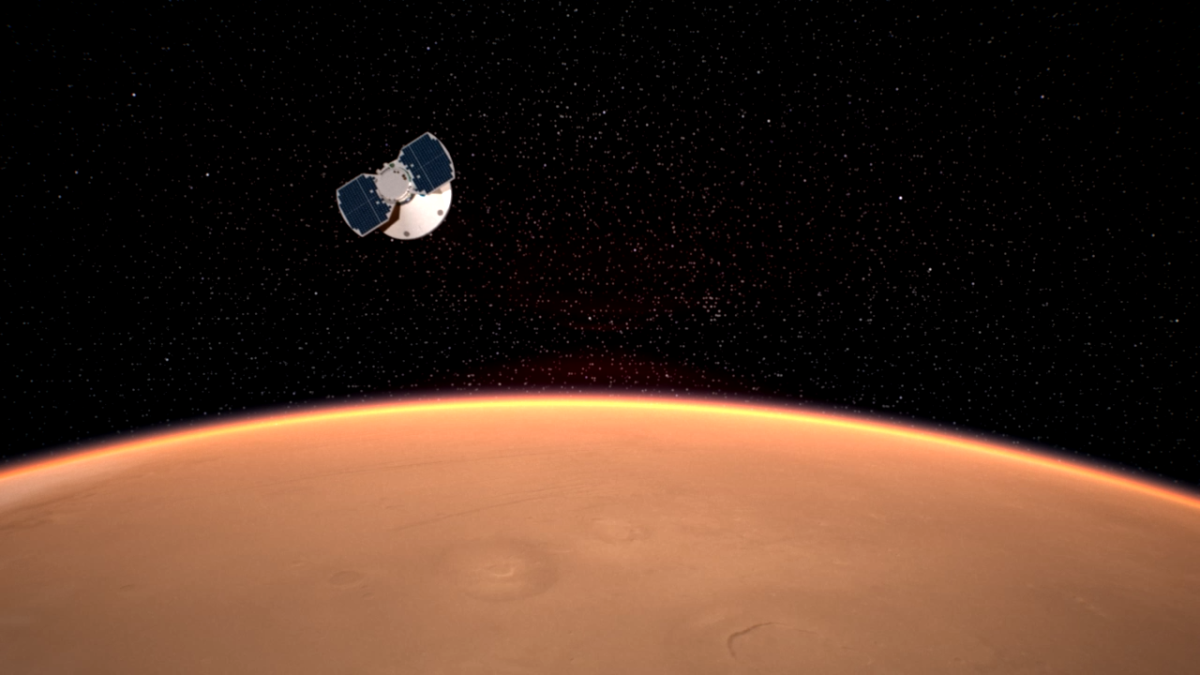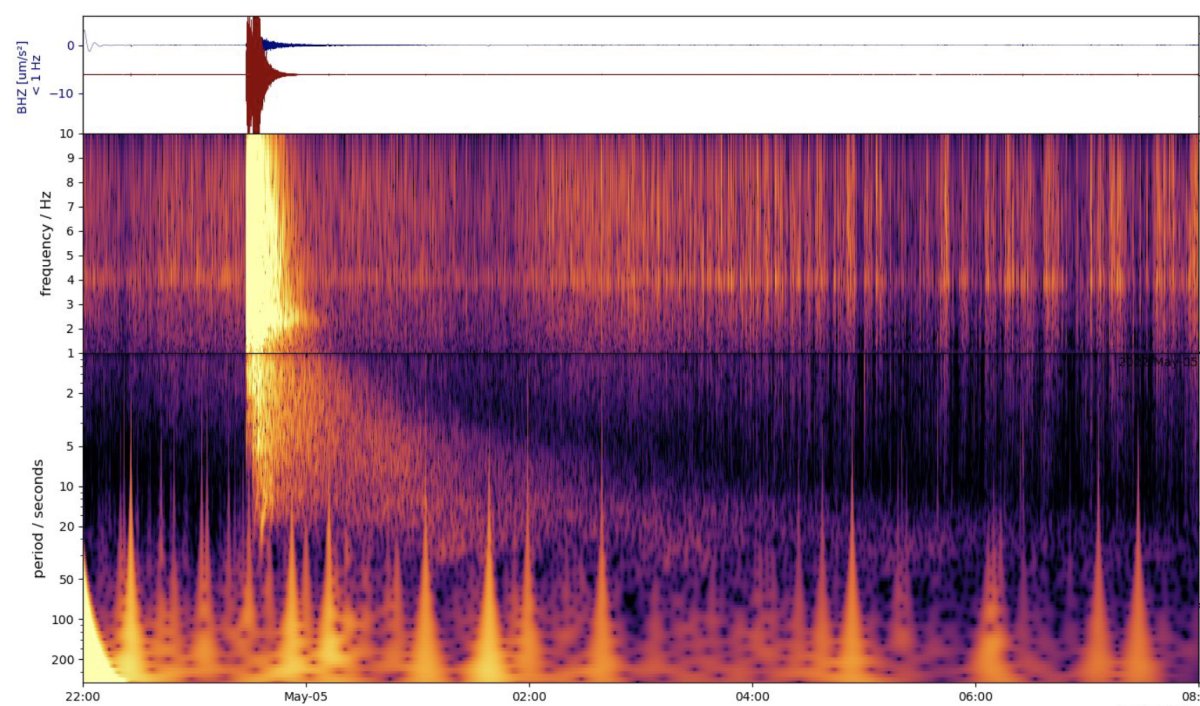Scientists have detected the largest "marsquake" ever recorded on our planetary neighbor Mars, which was initially thought to be the seismic shaking of a meteorite impact.
The quake was found to have lasted at least six hours, and had a magnitude of 4.7—equivalent to the earthquake that shook Northern California on Tuesday—indicating that Mars is much more seismically active than we first thought.
The reverberations of the quake were detected by NASA's InSight lander on May 4, 2022, and have now been ruled out as the rumbling of a meteorite hitting the surface, according to a new study in the journal Geophysical Research Letters.

It had previously been suggested as being the result of a meteorite collision due to the seismic signal of the event, dubbed "S1222a," as it was similar to those of past impacts. It sparked an international collaboration to search for a crater across 556,000 square miles of the planet.
"This event most closely resembled two events that we already had in the catalog which we knew to be meteorite impacts, which is why we thought this might be an impact too. Impacts and tectonic events have different seismic signatures," Benjamin Fernando, co-author of the study and planetary geophysicist at the University of Oxford in the U.K., told Newsweek.
After several years of searching, using data from satellites orbiting Mars, by researchers at the University of Oxford, alongside the European Space Agency, the Chinese National Space Agency, the Indian Space Research Organisation and the United Arab Emirates Space Agency, no crater or other sign of impact was discovered, leading to the conclusion that the rumbling was caused by a marsquake.
"We looked for atmospheric transients, e.g. a dust cloud, as well as a blast zone and a fresh crater. We didn't see any of these despite searching quite thoroughly, so we can conclude that this was not an impact event," Fernando said.
"This event was several times larger than the next largest marsquake that InSight detected, and confirms that Mars can host pretty hefty marsquakes. If people were ever to go there, this one is large enough that you would want to be aware of it—it would not bring the house down, as it were, but would certainly shake and potentially topple small objects."
Earthquakes on our planet are caused by two tectonic plates suddenly shifting past one another, releasing huge amounts of energy that ripple through the ground. Similar ripples of energy can be caused by meteorites hitting the ground, but in the absence of any signs of an impact, the researchers concluded that the S1222a event was instead caused by a release of tectonic energy inside Mars.
"We still think that Mars doesn't have any active plate tectonics today, so this event was likely caused by the release of stress within Mars' crust," Fernando said in a statement.
"These stresses are the result of billions of years of evolution; including the cooling and shrinking of different parts of the planet at different rates. We still do not fully understand why some parts of the planet seem to have higher stresses than others, but results like these help us to investigate further. One day, this information may help us to understand where it would be safe for humans to live on Mars and where you might want to avoid!"

The researchers are intrigued by what this discovery means for Mars research, and are also excited about the success of such a large-scale collaboration between institutions.
"This experiment shows how important it is to maintain a diverse set of instruments at Mars, and we are very glad to have played our part in completing the multi-instrumental and international approach of this study," Daniela Tirsch said in the statement.
Tirsch is the science coordinator for the High-Resolution Stereo Camera on board the European Space Agency's Mars Express Spacecraft
Ernst Hauber, lead of the geoscience working group for the High-Resolution Stereo Camera on the mission, agreed. "This shows how important mission extensions, like the ones that Mars Express has received in the last few years, are to maintaining a diverse set of instruments in orbit which are complementary to each other," he said.
Do you have a tip on a science story that Newsweek should be covering? Do you have a question about Mars? Let us know via science@newsweek.com.
Uncommon Knowledge
Newsweek is committed to challenging conventional wisdom and finding connections in the search for common ground.
Newsweek is committed to challenging conventional wisdom and finding connections in the search for common ground.
About the writer
Jess Thomson is a Newsweek Science Reporter based in London UK. Her focus is reporting on science, technology and healthcare. ... Read more
To read how Newsweek uses AI as a newsroom tool, Click here.






